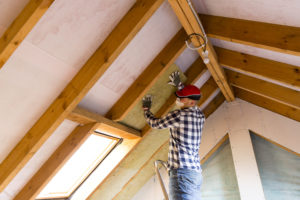
Lien and Notice Rules Can Be Different for Owner-Occupied Residences
Preliminary notice requirements for mechanics liens vary from state to state and project-by-project. One particular type of project that can prompt extra, or at least different, preliminary notice requirements in several states is a project on an owner-occupied residence.
Many states have made a determination that homeowners deserve some higher standard of notice or protection regarding the dwelling in which they live. But, this prompts a question: What happens when the “owner” lives in the residence but owns the property through an LLC or other company?
Why Buy Property (to live in) Through an LLC?
Many people, not just celebrities, have determined that buying or refinancing their property through an LLC makes good sense for a couple of primary reasons:
Reason #1 – Privacy
With the ability to search for (and find!) just about anything online these days, some people have decided that purchasing their residence through an LLC provides them much needed privacy. This is especially true for celebrities, but many everyday people have similar privacy concerns that can be addressed in the same manner. By buying under an LLC, it becomes very difficult to find out a party’s address by searching public property records, and it can make it much more difficult to determine the amount paid for the property itself. These days, it’s easy to understand why this kind of privacy might be appealing.
Reason #2 – Protecting Assets
While “protecting assets” sounds like something that might be needed by celebrities or other high net-worth individuals, everyone should be interested in protecting their assets, no matter how much, or how little, you have. By purchasing a residence through an LLC, personal assets are protected in just the same as in the business sense. Any lawsuit against the owner of the property would necessarily be against the LLC itself, not the individual. Individual assets are protected because only the assets owned by the LLC (the property) would be subject to the suit.
What Does This Mean for Mechanics Liens and Required Notices?
This is an interesting question, and unfortunately, there isn’t a definitive answer that universally applies.
On the one hand, the law considers an LLC to be a “juridical person” such that it is a legal person in the eyes of the law. However, it does not seem like a juridical person could possibly occupy a house. So, does that mean that a residence owned by an LLC can’t also be considered an “owner-occupied residence?”
If this is true, then the preliminary notices required for a “residential” project would pertain on such a project, but any additional notice requirements for an owner-occupied residence would not.
While there is some disconnect between the fact that a person who “owns” an LLC that in turn owns a property in which the person resides is not an owner-occupier — it makes sense as a trade-off in the scheme of LLC property ownership.
Or in other words, if one is to gain the benefits of not technically owning the property, one must also accept the detriments of not technically owning the property. In terms of mechanics liens, this might make it easier for project participants to file a mechanics lien against the property.
The Bottom Line
So what does all of this legal mumbo-jumbo mean?
Well, after a entire post about LLC-owned residences not actually being considered owner-occupied residences, we’ve got some information that may be a bit of a surprise: when it comes to sending notices and managing your lien rights, you should go ahead and treat an LLC-owned residence as an owner-occupied residence, just to be on the safe side.
While the standards for an owner-occupied residence are generally stricter and require more work, it’s always better to err on the side of caution, especially in this case where the law isn’t always entirely clear.
For help with lien and notice requirements for owner-occupied residences (and for any type of construction project), be sure to check out Levelset’s comprehensive construction payment resources levelset.com. There you’ll find helpful info, FAQs, and more for all 50 states.


